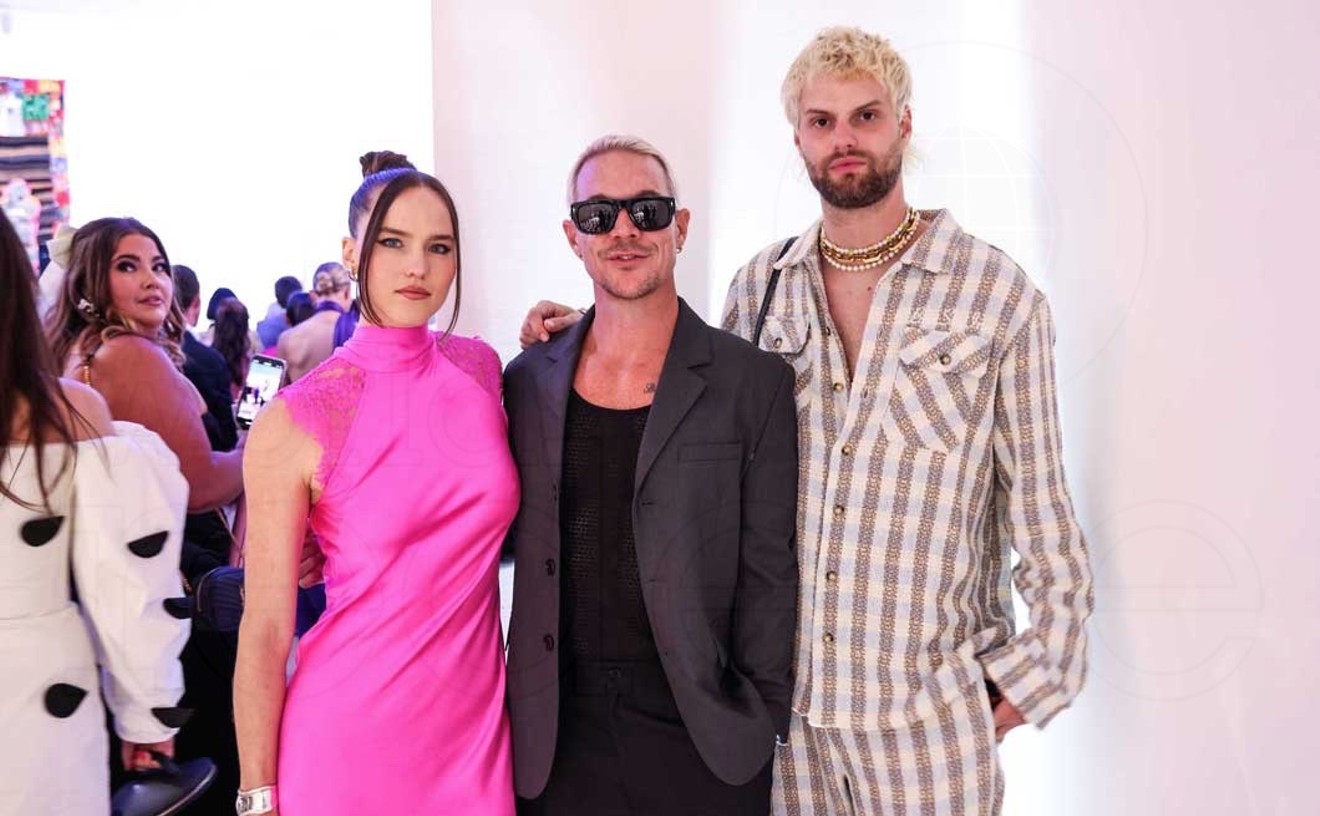"Photographs are a way of imprisoning reality... One can't possess reality, one can possess images — one can't possess the present, but one can possess the past."
— Susan Sontag
Each of the four scenes in Sean Grennan's play Making God Laugh ends in a family photograph that's meant to immortalize a moment in time. We're aware of the unspoken purpose of these images: to preserve the illusion of happiness, tidiness, and unity in a memento of forced smiles. It's an awfully Sontagian device, and a relatable one: After all, how many images in your old photo books even hint at things such as depression, discomfort, and discord? We airbrush them out, maintaining only the reality we want.
Yet, in Actors' Playhouse's production of Making God Laugh — thanks to the direction and a quintet of uniformly superb performances — each of these frozen fantasies becomes a snapshot of the characters' emotional states at the time of the photograph. The hurt and the longing show through, defiant and truthful, so that we can, perhaps, peer into their souls.
This production is a triumph for Actors' Playhouse thanks to small revelations like those, which help to illuminate the playwright's words and fill the spaces between them with profound humanism. This is an exceptional feat considering that Grennan's play is not of the caliber of Actors' Playhouse's well-chosen regional premieres in recent years. It's not of the caliber of August: Osage County or Other Desert Cities — works that arrived as diamonds. Making God Laugh can be tedious and rough, but just wait until you see how it can be polished.
The play begins in a family home on Thanksgiving 1980, establishing the characters of matriarch Ruthie (Angie Radosh); her husband, Bill (Peter Haig); and their three children, Richard (Gregg Weiner), Maddie (Deborah L. Sherman), and Thomas (Michael Focas). The narrative continues in ten-year increments: Christmas 1990, New Year's Eve 2000, and Easter 2010, so that by the end we've watched the characters — and the actors, thanks to bang-up jobs in hair and makeup — age and mature in more ways than one.
Grennan loves this concept, and the nostalgic possibilities of it, a bit too much. For much of the first act and a few irritating portions of the second, his script is a repository for lazy jokes about the fads of the periods. In the '80s, it's eight-track tapes, the short-lived AMC Pacer, and Bedazzlers; in the '90s, it's brick-like cell phones, email, the real estate bubble, and the Yugo; and in the '00s, it's Y2K paranoia and the sure bet of investing in "this company called Enron." These pop references are trotted out with shallow irony, allowing us enlightened spectators to share yuks at the characters' expense. Easy setups lead to easier punch lines in the manner of a second-rate sitcom. It's to the actors' credit that they are able to overcome such tackiness.
The costume design, by Ellis Tillman, is also period-ghastly, but it works to the play's hilarious advantage. We see Gregg Weiner in a mullet and boxy sunglasses; then a ponytail, fanny pack, do-rag, and faded Star Wars shirt; and then in military fatigues as an Alex Jones-like doomsday prophet. These details are delicious — another example of this production excelling beyond the call of duty.
By the time Grennan gets around to the dramatic core of his story, the show itself catches up to the quality of the production. In the early scenes, Grennan plants the seeds of discontent that will flower in Act II. Richard is alcoholic and rudderless, and each decadelong increment finds him drifting further into an abyss. Thomas evolves into a parish priest but eventually finds himself drawn to the possibilities of a wife and children. Maddie is an actress struggling to make it in a cutthroat industry. All of them, at one point or another, receive passive-aggressive condemnations from their mother Ruthie, the play's central character, who grafts her own desires and regrets onto her surrogate children.
These characters' evolutions are marvelous to watch, thanks to performances that are rife with poise, subtlety, and intelligence. Weiner is terrific at portraying an uncouth slob, but he's even better at revealing his character's sensitivities — the vulnerabilities masked by his putdowns. Sherman is so real in this part it's frightening, from her first appearance as a 20-something rocker to her powerful recitation of a Shakespeare monologue in the final scene. Haig has the yeoman's job of making three-dimensional a character who so often blends into the background as an amiable peacemaker, but he delivers what might be the play's most emotionally stirring catharsis.
And Radosh, channeling the sort of deluded turmoil she brought to her performances of Tennessee Williams plays at New Theatre, is once again a master class in and of herself. Watch her just be in the play's most affecting scene, where she becomes a marginalized figurehead in the family and ultimately earns our pity. The color drains from her face, and she's as white as a ghost and as limp as a deflated punching bag.
Afterward, there's a scene in Making God Laugh that will suggest bittersweet closure, but this is the most powerful of the show. In an abject state, Ruthie is prompted to pose for the traditional family photograph, and for once she's not the ringleader behind the lens. She's more like a sad deer caught in sad headlights. With one mournful gaze, she cuts through her own bullshit as the camera flashes and another year fades out.










